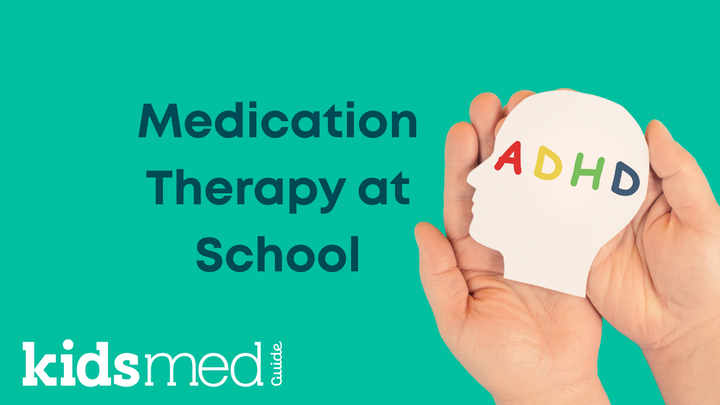Immunization Updates for Flu, Covid Boosters, and Other Seasonal Vaccines
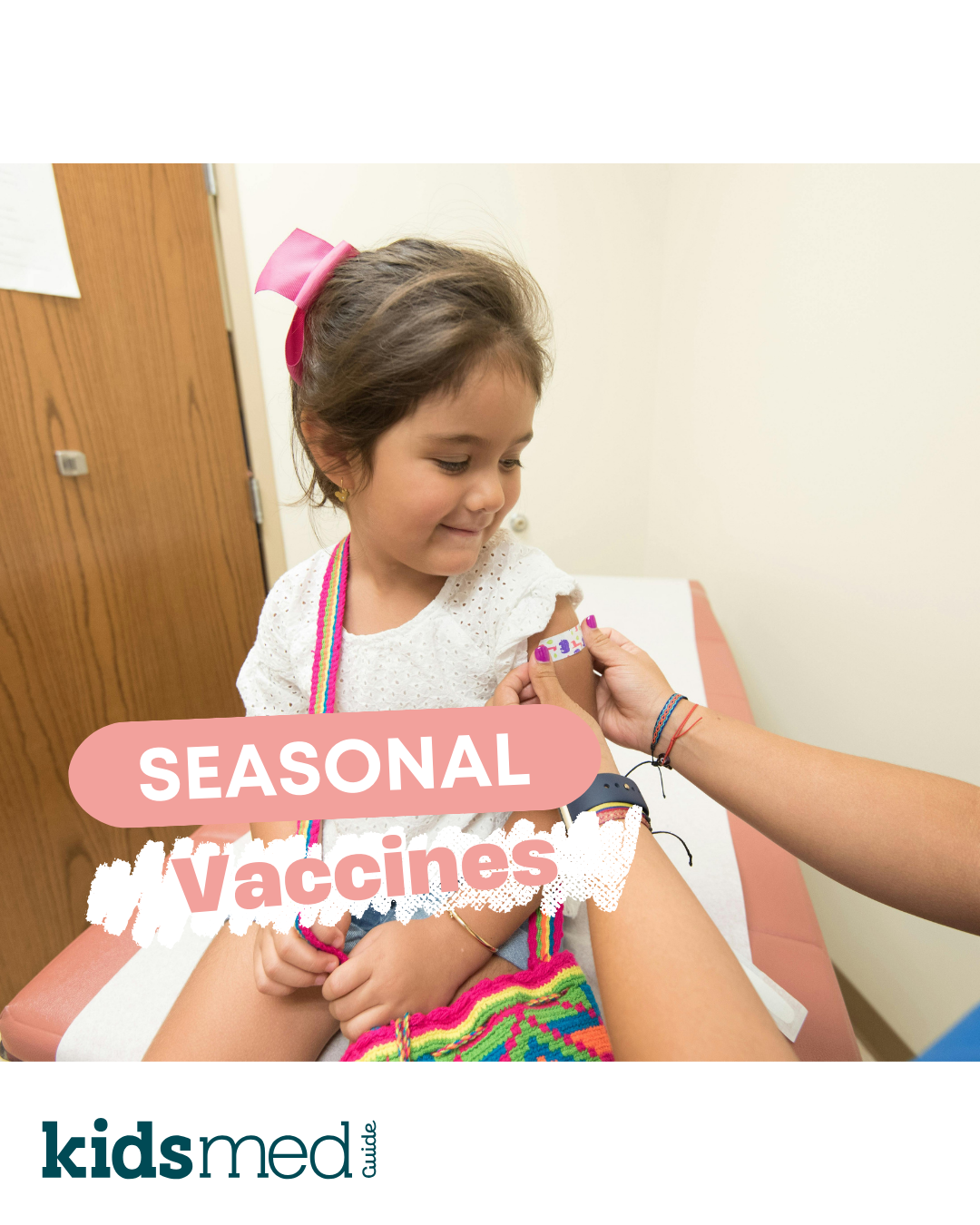
Back-to-school season is here, bringing the annual rush of runny noses, coughs, and fevers, along with the inevitable paperwork for school and sports! It’s a good (and often required!) time to make sure your child’s physical exams and immunizations are up to date.
This year feels especially tough for parents because of a flood of conflicting, false, or contentious information about vaccines online. Sorting through it all can be overwhelming, and it's hard to know what information to trust.
Our main takeaway is that approved seasonal vaccines in the United States are safe and effective, helping to prevent illness and death. Vaccines undergo a thorough approval process and are closely monitored for safety over the long term.
That being said, it’s completely normal for parents to feel nervous about their children receiving shots! While vaccines are generally safe and effective, there might be rare cases where a specific recommended vaccine isn’t suitable for your child. I always recommend talking to your trusted pediatrician when making health decisions for your child.
This guide aims to explain the official seasonal vaccine recommendations from organizations like the CDC and the AAP, highlight the latest guidance, and share our organization’s perspective.
Why Seasonal Vaccines Are Important
Children spend much of their time in close contact at school and daycare, making the spread of respiratory illnesses, such as the flu, nearly unavoidable. Seasonal vaccines help reduce the risk of serious illness, missed school days, and disruptions to family life. Let’s keep those kids in school!
Vaccination not only protects your child but also helps protect vulnerable members of the community, including newborns and the elderly, such as grandparents. Vaccination also reduces the risk of school-wide outbreaks.
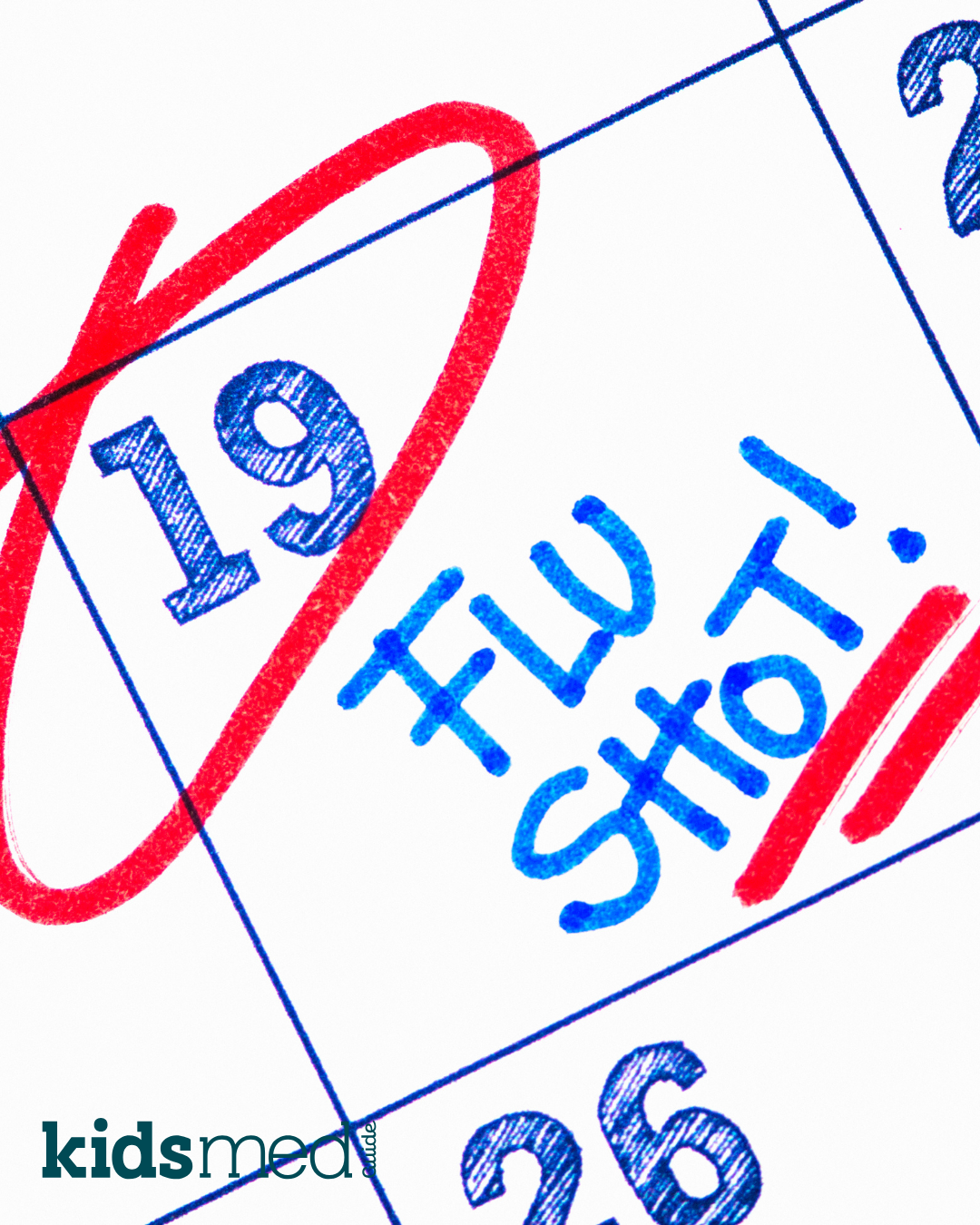
Recommended Vaccines for the School Year
Flu vaccine
The flu vaccine is updated every year to match the strains expected to circulate. The effectiveness of the shot can vary slightly from year to year, but even if it’s not a perfect match, it still provides protection!
The CDC and AAP recommend yearly flu vaccination for all children 6 months and older. The CDC specifically recommends single-dose syringes that are free of thimerosal, while the AAP does not make a specific product recommendation.
Ideally, vaccination should be done before flu season starts in late fall – September or October are the best times – but it’s never too late to get vaccinated. Research shows that the flu vaccine significantly lowers the risk of severe illness, hospitalization, and flu-related complications in children.
The flu can be especially dangerous and even deadly for children, especially babies and toddlers, as well as those with other medical conditions. Sadly, there are pediatric flu-related deaths each year. Even mild-moderate infections can cause a week or more of high fevers, missed school, and general misery.
Vaccination has been shown to reduce these risks. The KidsMedGuide team strongly recommends an annual flu vaccine for all children and advises talking to your pediatrician if you have concerns.
COVID-19 booster for kids
COVID-19 vaccines continue to evolve as new variants emerge. The COVID-19 vaccine is available for children as young as 6 months old (although only Moderna’s product is currently available and approved for patients aged 6 months through 4 years).
Both the CDC and the AAP provide guidance on dosing for pediatric patients, which varies depending on age, the vaccine product, and whether your child has been vaccinated before.
However, the two organizations have different recommendations on vaccinating children against COVID-19. While there are many caveats, the main difference is:
- CDC: Does not recommend the COVID-19 vaccine in its routine pediatric immunization schedule. CDC recommends that the decision to vaccinate should be made through shared clinical decision-making between parents and providers for all pediatric patients.
- AAP: Recommends routine universal COVID-19 vaccination for patients aged 6–23 months. For children aged 2–18 years, the AAP suggests a dose for those at higher risk due to comorbidities or other factors. For ages 2-18 who are not at high risk of COVID-19 complications, the vaccine is not universally recommended but should be offered if parents or guardians want protection.
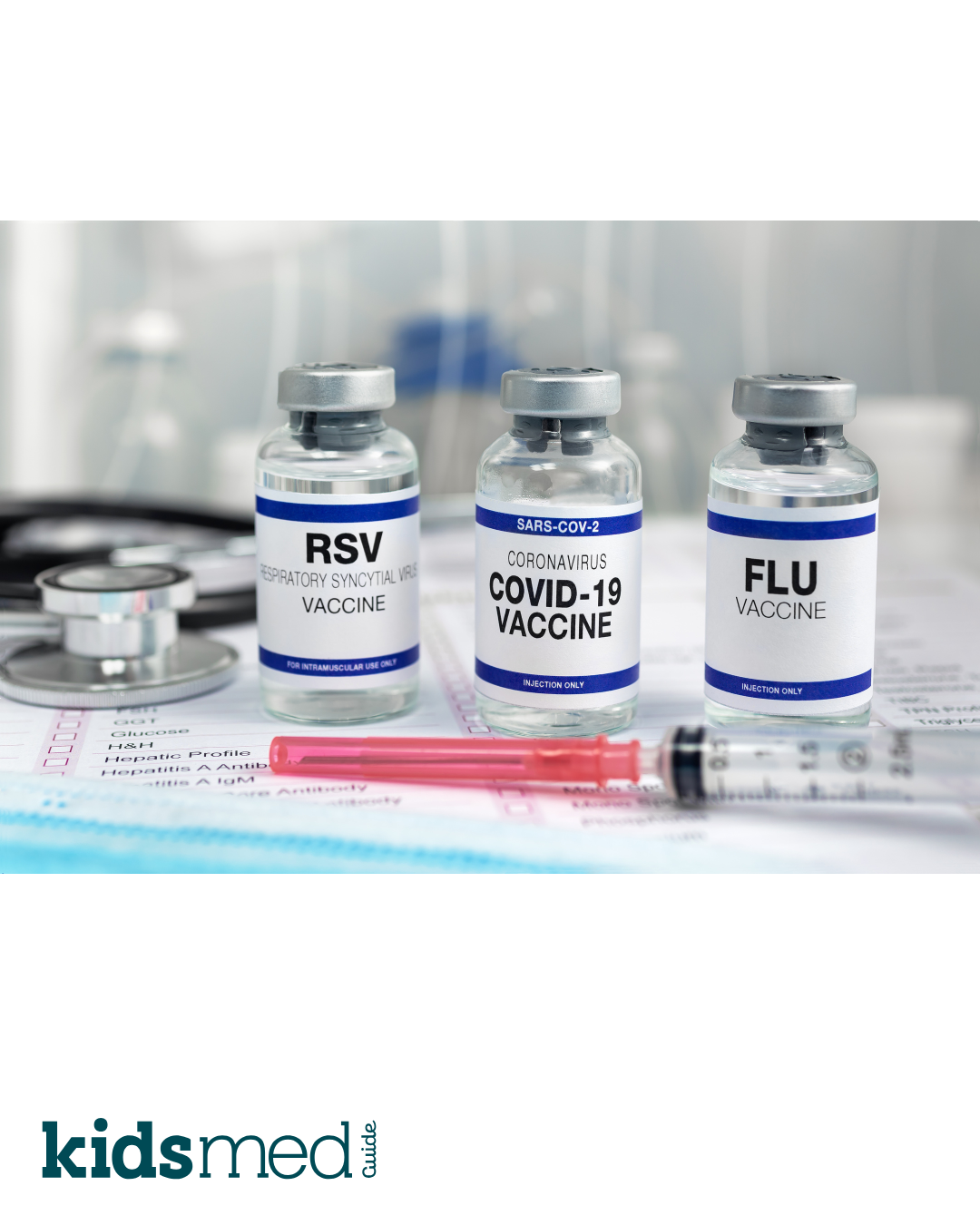
Our KidsMedGuide recommendation is to follow the AAP guidance, or at least read through the guidelines, consider their recommendations, and consult with your pediatrician before making a decision. The AAP committee is comprised of leading pediatricians and infectious disease specialists dedicated specifically to the health of children.
Whether you choose to vaccinate your children against COVID-19 or not, stay attentive, as this remains a new disease that scientists are still researching, and guidance may continue to evolve. There are also concerns about federal funding and insurance reimbursement in light of the new CDC guidelines, making this a situation to monitor closely.
Other seasonal vaccines
Besides flu and COVID, some children might require other seasonal vaccines. These include Tdap (needed before entering middle school in many states), meningococcal vaccines for teenagers, and sometimes the new RSV shot for infants. Your child’s pediatrician can help decide what’s necessary based on age, medical history, and regional guidelines.
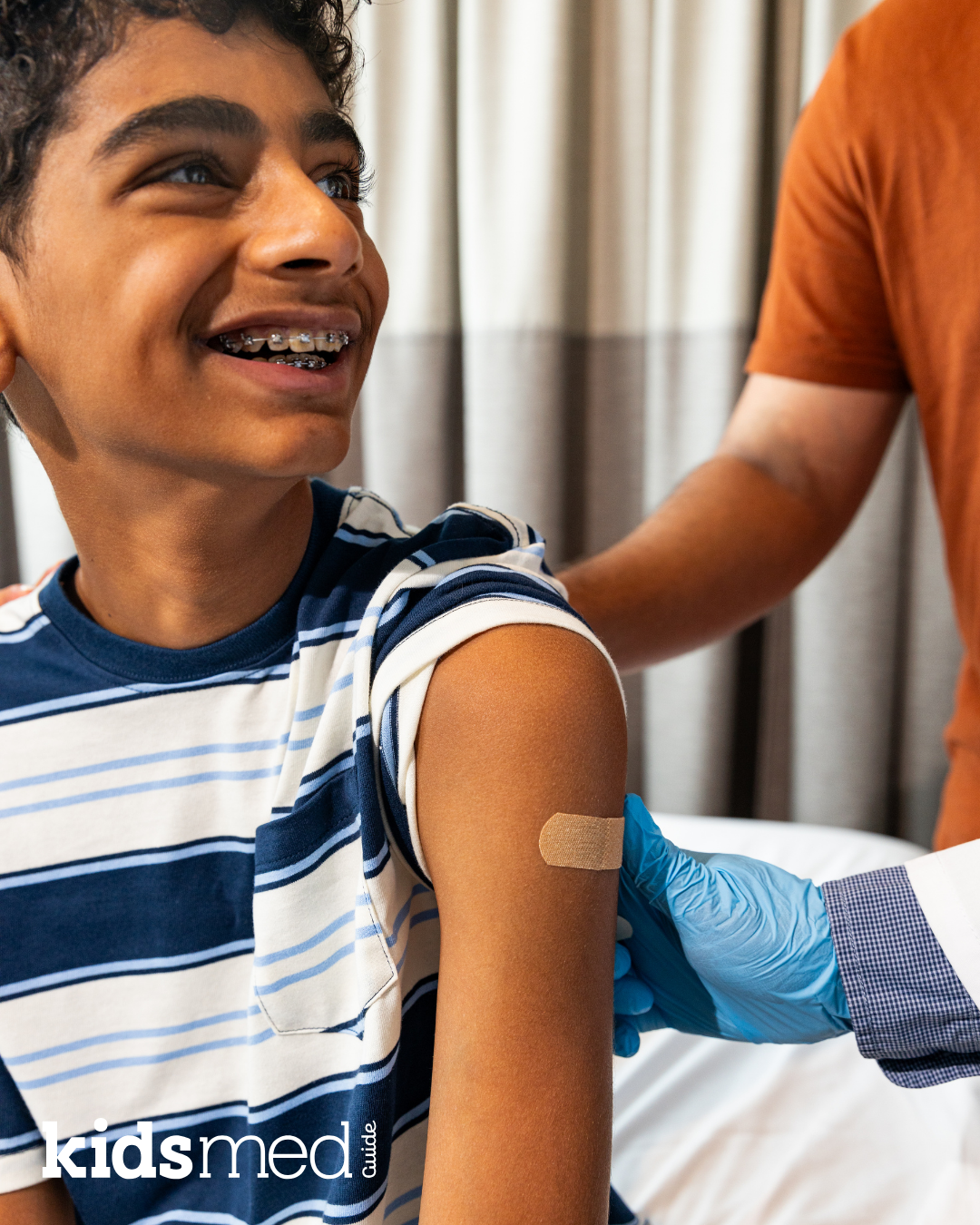
Preparing for Immunizations
Preparing your child for vaccines can help make the experience less stressful. Set yourself up for success (or at least fewer problems) by scheduling vaccines at a time when your child will be at their best – not when they’re hungry or tired, for example. If there’s a parent or caregiver that your kids do better with for medical stuff, tag that person in!
You can also prepare your child emotionally by explaining in age-appropriate terms what to expect. Do this right before the appointment, not in advance. Kids won’t benefit from worrying about shots for days. Simple strategies, like distraction, deep breathing, or using comfort objects, help. Each child is different, but do what works, whether that’s allowing screen time in the room, sitting on mom’s lap, or bribing them with a special treat afterward.
Vaccine Safety and Common Concerns
Most side effects after vaccination are mild, such as soreness at the injection site, fatigue, or low-grade fever. These usually resolve within a day or two and can often be managed with rest, fluids, and acetaminophen if needed. Serious side effects are rare but should be reported to a healthcare provider immediately. If you’re ever unsure about whether a reaction is concerning, call your pediatrician.
Frequently Asked Questions
Which vaccines are required before school starts?
Requirements vary by state, but most include DTaP/Tdap, MMR, polio, and varicella. Check your state’s Department of Public Health website for specifics.
Are flu vaccines mandatory for all children?
While not universally required, flu vaccines are strongly recommended by the CDC and AAP. Some schools or daycare programs may have their own requirements.
How often should COVID boosters be given to kids?
The schedule depends on your child’s age, health conditions, and timing of their last dose. Parents may want to consider the guidelines from different organizations and talk to their pediatrician for guidance.
Can multiple vaccines be given together safely?
Yes. Research shows that children can safely receive multiple vaccines at the same visit. Combination shots are often used to reduce the number of injections.
How do I maintain an accurate child immunization schedule?
Keep a copy of your child’s vaccine records and utilize digital tools when possible. Many electronic health records and state agencies track vaccine records. Your pediatrician can assist in reviewing and updating the schedule regularly.
The following references were used to compile this information:
AAP Immunization Schedule. (2025). https://publications.aap.org/redbook/resources/15585/AAP-Immunization-Schedule
CDC. (2025, August 7). Child and Adolescent Immunization Schedule by Age (Addendum updated August 7, 2025). Vaccines & Immunizations. https://www.cdc.gov/vaccines/hcp/imz-schedules/child-adolescent-age.html
Committee on Infectious Diseases. (2025). Recommendations for COVID-19 Vaccines in Infants, Children, and Adolescents: Policy Statement. Pediatrics. https://doi.org/10.1542/peds.2025-073924
Grohskopf, L. A. (2025). Prevention and Control of Seasonal Influenza with Vaccines: Recommendations of the Advisory Committee on Immunization Practices — United States, 2025–26 Influenza Season. MMWR. Morbidity and Mortality Weekly Report, 74. https://doi.org/10.15585/mmwr.mm7432a2
Jenco, M., & Editor, S. N. (2025). COVID vaccine authorizations raise questions about liability, payment. https://publications.aap.org/aapnews/news/33061/COVID-vaccine-authorizations-raise-questions-about
Wolf, R. M., & Antoon, J. W. (2023). Influenza in Children and Adolescents: Epidemiology, Management, and Prevention. Pediatrics in Review, 44(11), 605–617. https://doi.org/10.1542/pir.2023-005962

